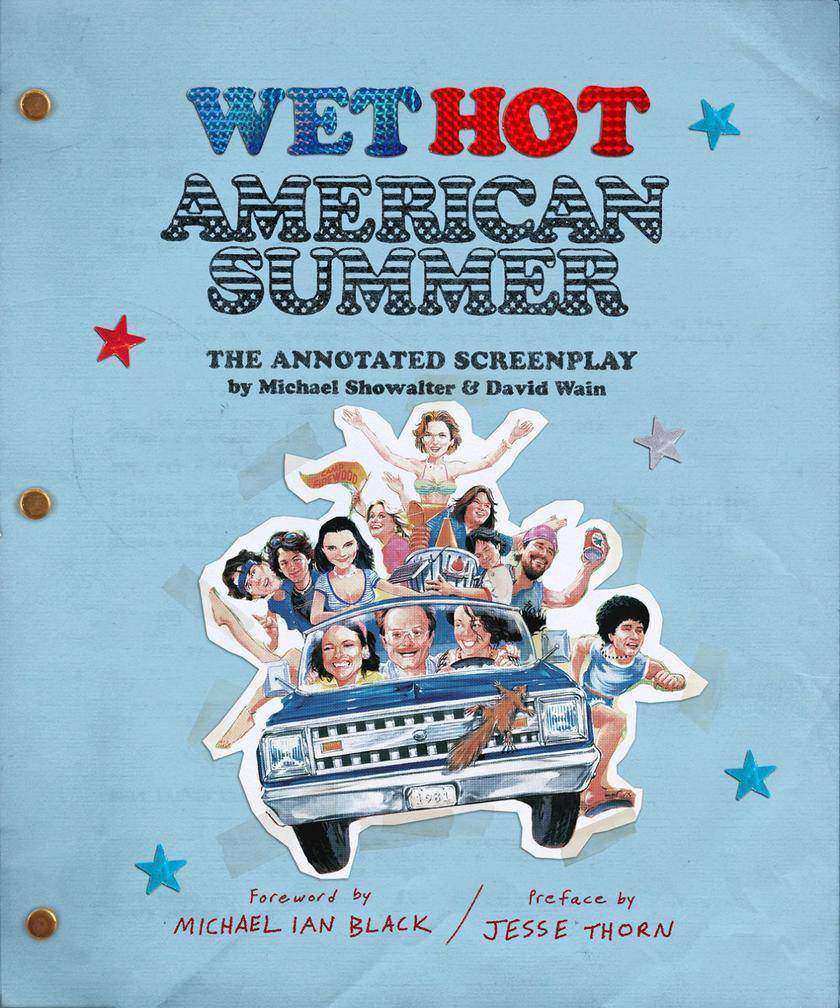
Wet Hot American Summer - The Annotated Screenplay
¥169.03
At long last, this is the definitive Wet Hot American Summer book fans have been clamoring for! Screenwriters David Wain and Michael Showalter take pen to page and create a hilarious, behind-the-scenes annotated version of the original screenplay that launched a thousand Halloween costumes. They provide commentary on and insight into how and why they made the artistic decisions they did while writing and filming the movie that went on to become a true cult classic, as well as an ongoing Netflix series. The book will also feature reproduced ephemera from filming-photos, original (and scathing) reviews, AIM chat conversations, marked up script pages, and so much more. Written and curated by Wain and Showalter, this will be the must-have guide to all things Wet Hot.
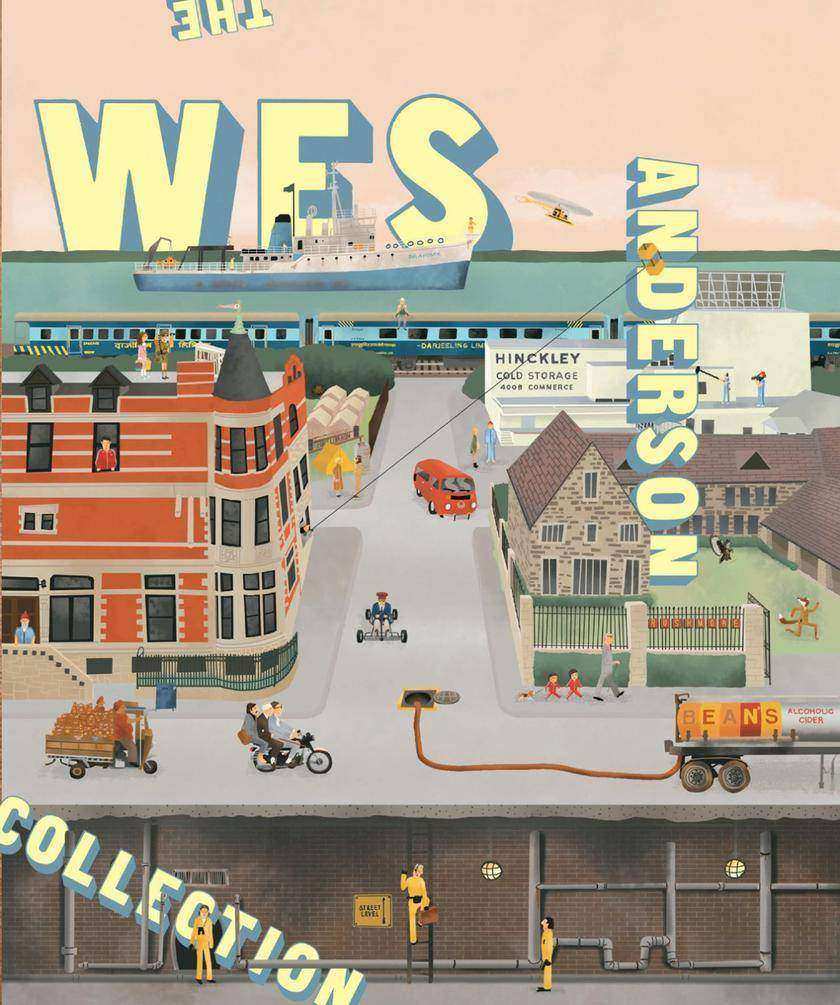
Wes Anderson Collection
¥107.81
ThisNew York Timesbestselling overview of Wes Andersons filmography features previously unpublished behind-the-scenes photos, artwork, and ephemera, with an introduction by Michael Chabon. Writer/director Wes Anderson guides movie/television critic Matt Zoller Seitz through Andersons life and career in a hardcover book-length conversation, woven together with original illustrations and production images fromBottle Rocket,Rushmore,The Royal Tenenbaums,The Life Aquatic with Steve Zissou,The Darjeeling Limited,Fantastic Mr. Fox, andMoonrise Kingdom. The result is a meticulously designed book that captures and reflects the spirit of Wes Andersons movies: melancholy, playful, wise, and wonderfully unique. Also available from Matt Zoller Seitz: The Oliver Stone Experience, The Wes Anderson Collection: Bad Dads, The Wes Anderson Collection: The Grand Budapest Hotel, and Mad Men Carousel.
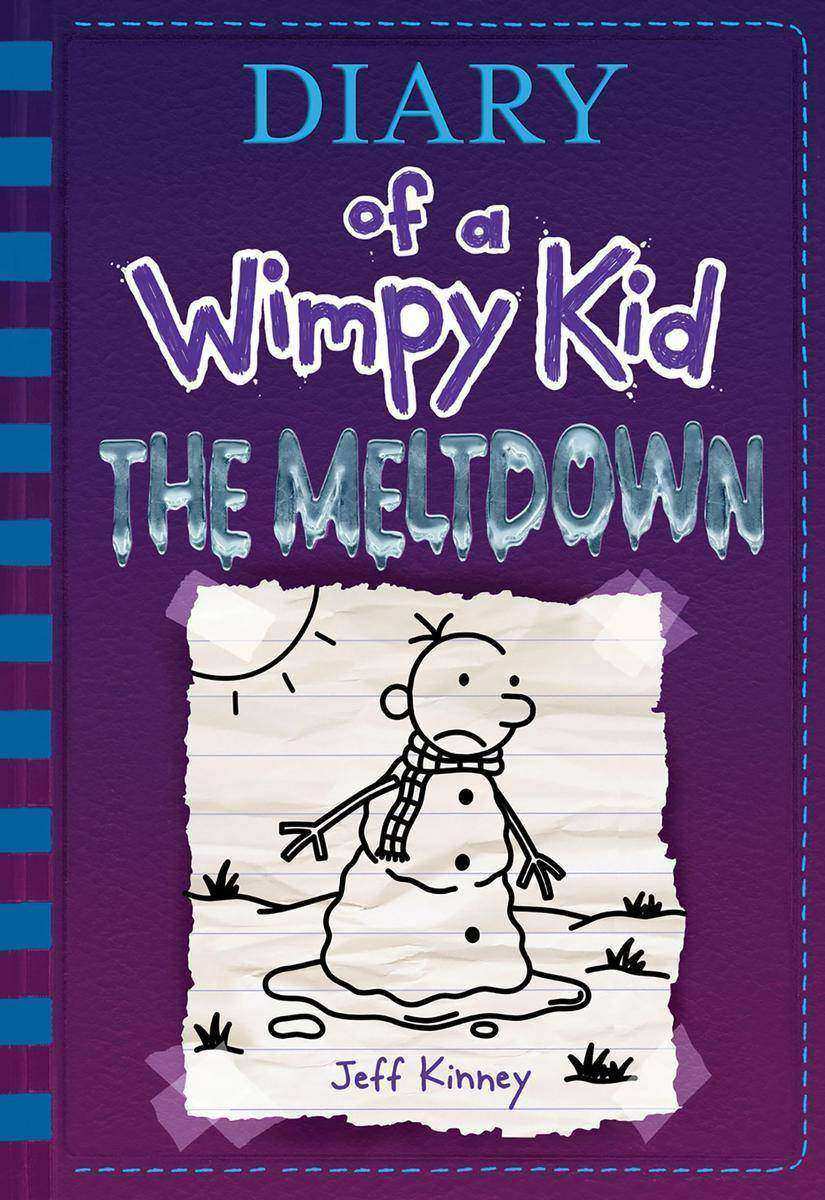
Meltdown (Diary of a Wimpy Kid Book 13)
¥158.82
When snow shuts down Greg Heffley's middle school, his neighborhood transforms into a wintry battlefield. Rival groups fight over territory, build massive snow forts, and stage epic snowball fights. And in the crosshairs are Greg and his trusty best friend, Rowley Jefferson. It's a fight for survival as Greg and Rowley navigate alliances, betrayals, and warring gangs in a neighborhood meltdown. When the snow clears, will Greg and Rowley emerge as heroes? Or will they even survive to see another day?
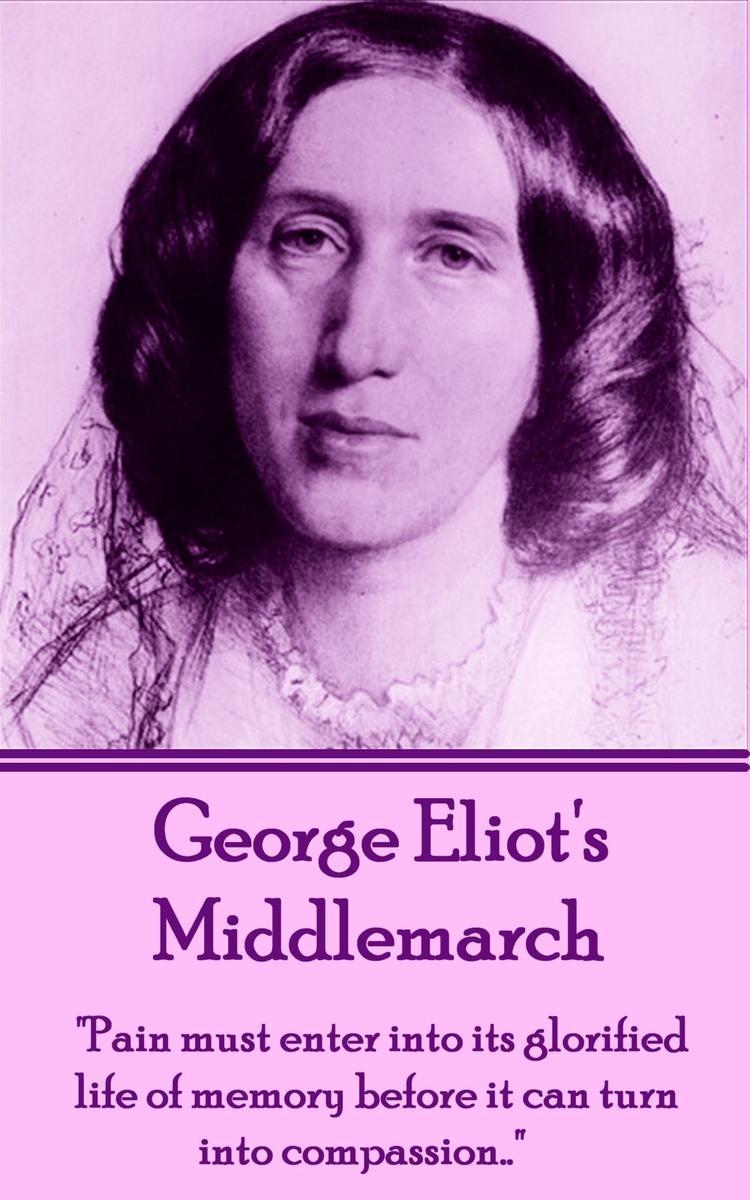
Middlemarch
¥46.99
George Eliot opens her complex study of life in the provincial Midlands with a brilliant portrait of Dorothea Brooke in all her strengths and weaknesses. Dorothea's misguided marriage is only one of the many, at first seemingly quite separate, stories of thwarted ideals, passions and ambitions. In the end the 'web of relationships' comes together as every character meets an appropriate fate. The story links the struggles of the individuals with the problems of society as a whole, as it wrestles with the disturbances that are approaching through industrialisation and a changing social order.
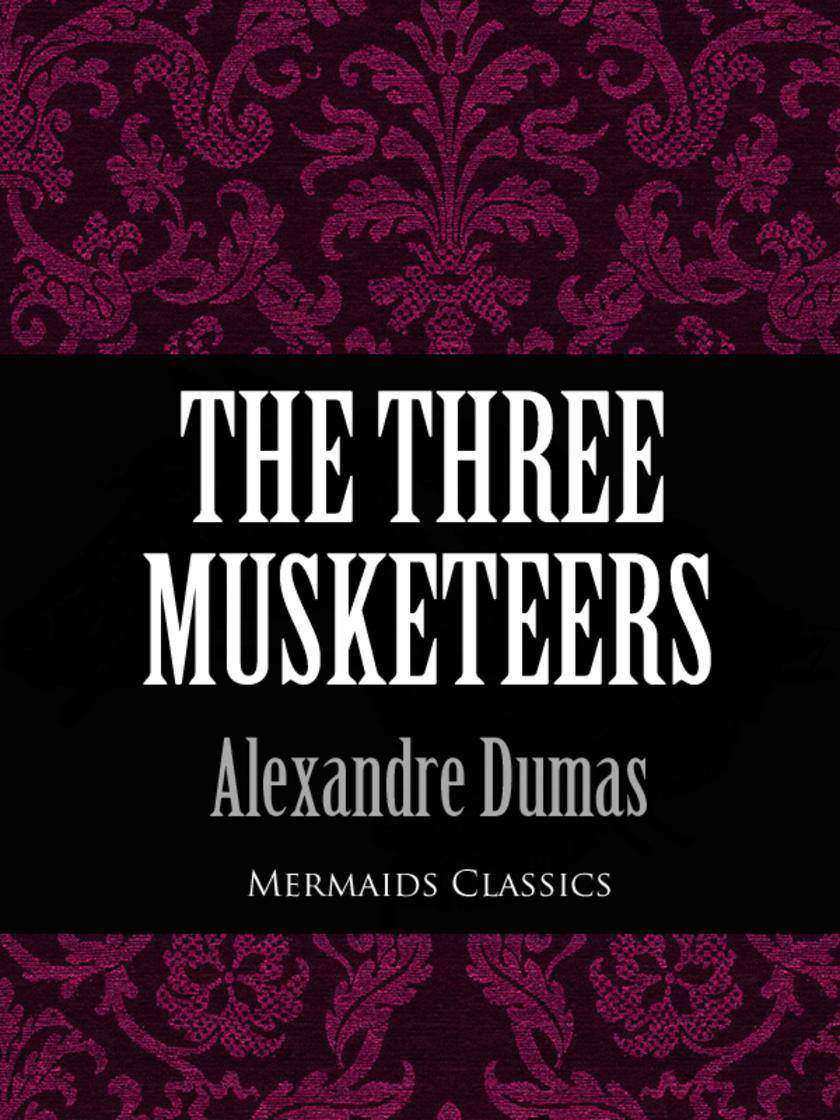
Three Musketeers (Mermaids Classics)
¥35.22
The Three Musketeers (1844) was written by the French author Alexandre Dumas (1802-1870) who also wrote the famous classic The Count of Monte Cristo. The Three Musketeers are three close friends named Aramis, Porthos and Athos and the story follows the adventures of another young man named dArtagnan who leaves home in order to join the Musketeers of the Guard.Mermaids Classics, an imprint of Mermaids Publishing brings the very best of old classic literature to a modern era of digital reading by producing high quality books in ebook format. All of the Mermaids Classics epublications are reproductions of classic antique books that were originally published in print format, mostly over a century ago and are now republished in digital format as ebooks. Begin to build your collection of digital books by looking for more literary gems from Mermaids Classics.
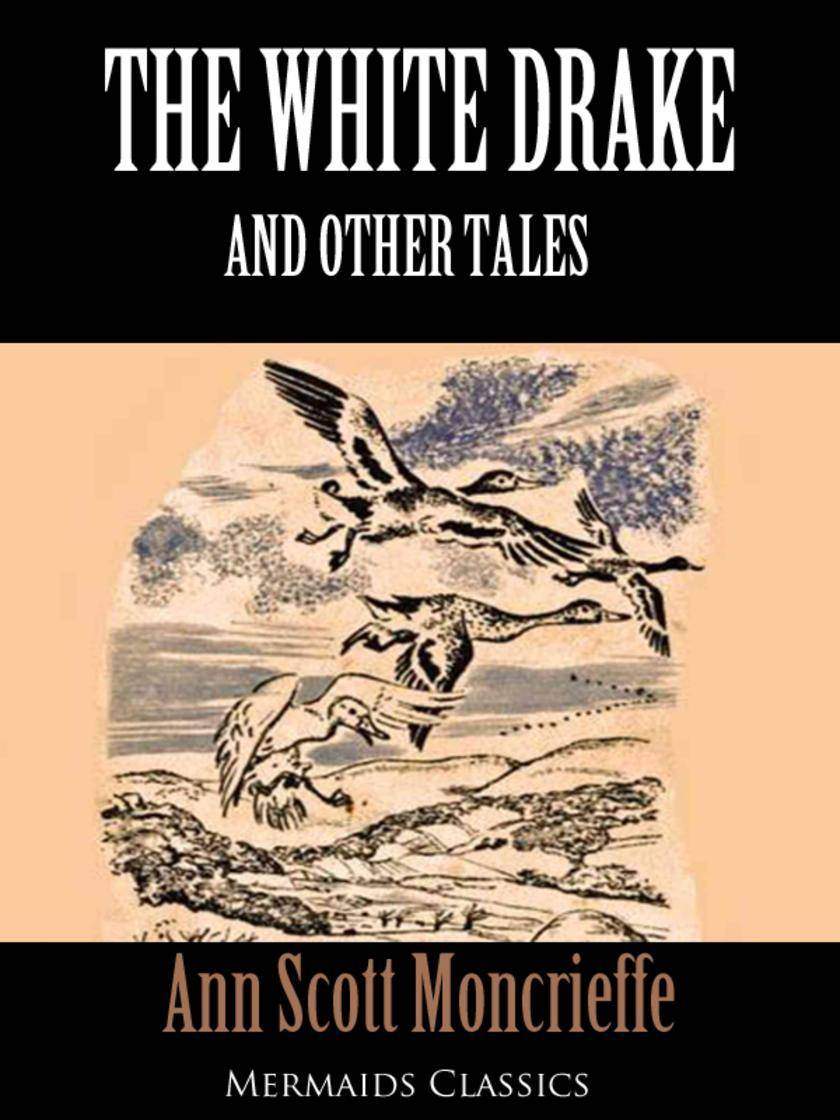
White Drake and Other Tales (Mermaids Classics)
¥35.22
The White Drake and Other Tales by Ann Scott-Moncrieff (1914-1943) is childrens book which was first published in 1936. It was illustrasted by Rojan and contains a volume of short stories including:- THE WHITE DRAKE- FIRKIN AND THE GREY GANGSTERS (EIGHT CHAPTERS)- FURTHER ADVENTURES OF FIRKIN- THE SHEEP WHO WASNT A SHEEPMermaids Classics, an imprint of Mermaids Publishing brings the very best of old classic literature to a modern era of digital reading by producing high quality books in ebook format. All of the Mermaids Classics epublications are reproductions of classic antique books that were originally published in print format, mostly over a century ago and are now republished in digital format as ebooks. Begin to build your collection of digital books by looking for more literary gems from Mermaids Classics.
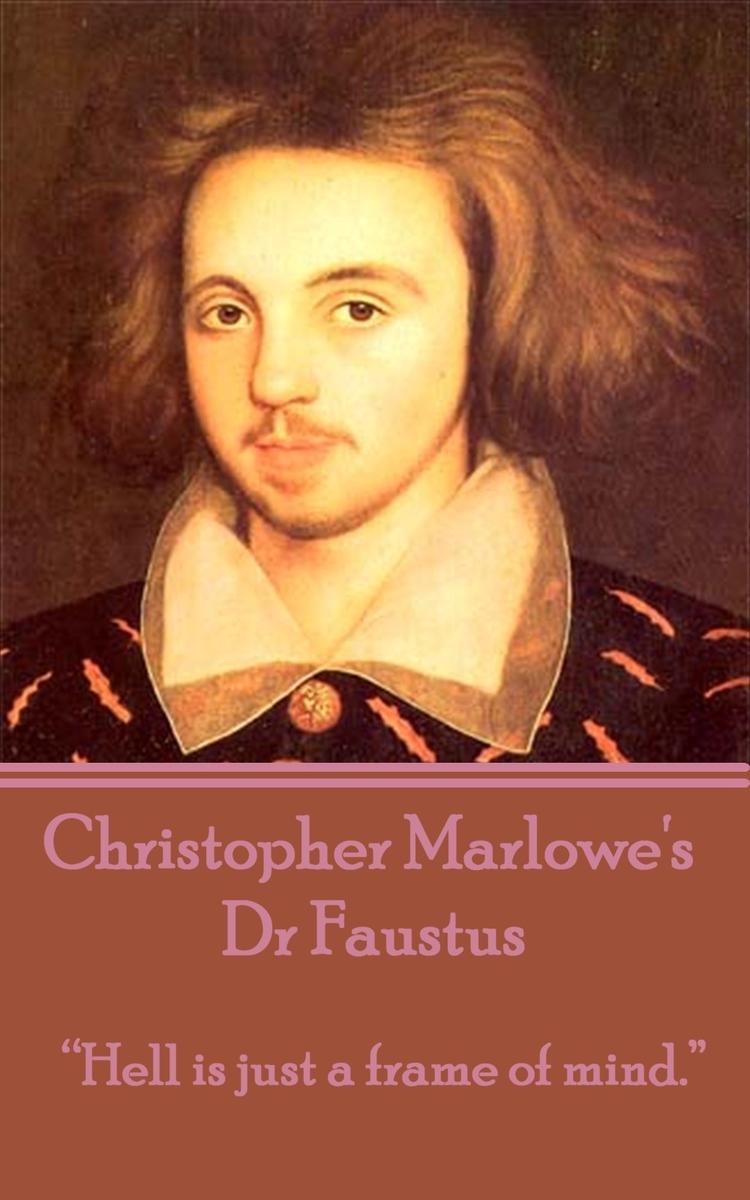
Dr Faustus - Hell is just a frame of mind.
¥9.32
In this foundational classic play, Christopher Marlowe beautifully retells the legend of Doctor Faustus in a masterful combination of verse and prose. The celebrated moral of the play is about how excessive ambition and unlimited lust for knowledge and power lead to self-destruction and damnation. The protagonist in the story is a talented lower-class man who is obsessed with the study of sciences and the secrets of life. His excessive academic ambition and his reliance solely on logic and reason lead him to cogitate about the nature of the world and its existence and to question the utility of the "e;doctrine of Divinity."e; Unsatisfied with the knowledge that pure and experimental sciences can offer, he eventually decides to explore the curious world of Black Magic. Through the recital of a strange incantation, Faustus succeeds in summoning a devil called Mephistopheles who informs him that he will only obey his orders once a pact is signed between Faustus and the devil's master: Lucifer. The pact is signed by Faustus' own blood and stipulates that in return of Mephistopheles' services, which unexpectedly turn to be unworthy by the end, he must give his soul over to Lucifer. The denouement of the play opens the floor for different speculations about Faustus' damnation or salvation.
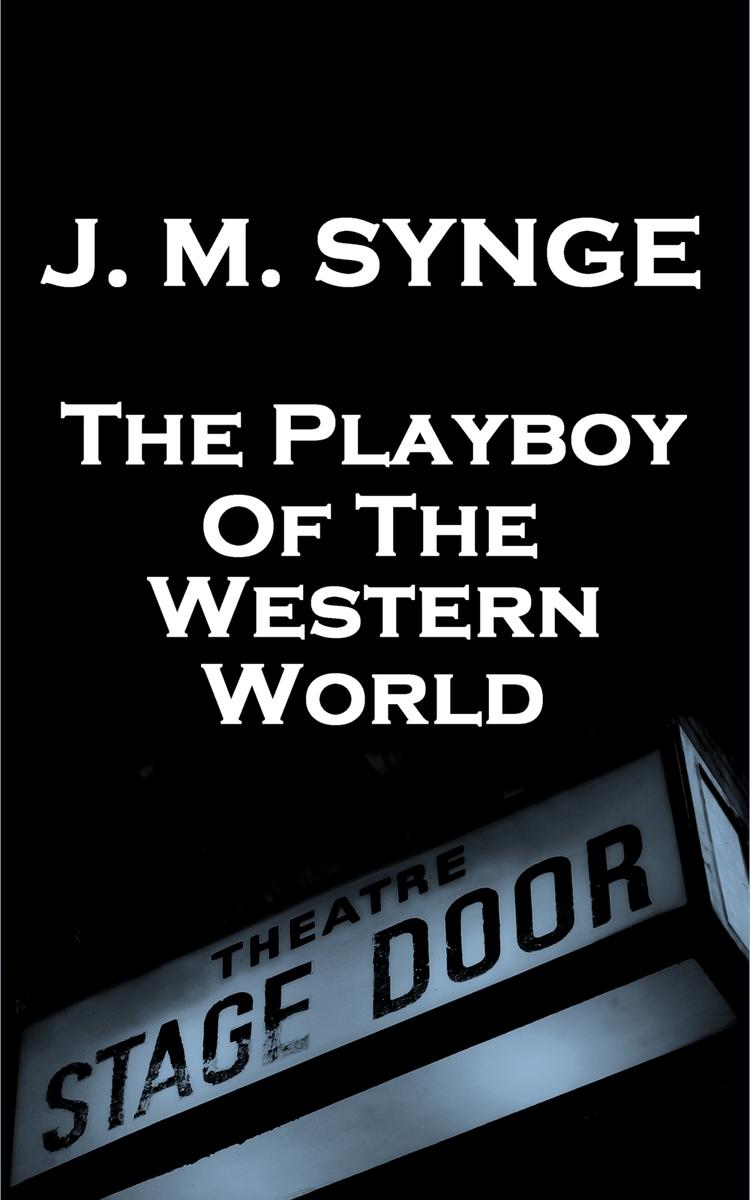
Playboy Of The Western World
¥20.60
In 1896 JM Synge met W. B. Yeats, who encouraged Synge to live for a while in the Aran Islands and then return to Dublin and devote himself to creative work. In 1897 Synge suffered his first attack of Hodgkin's disease, a form of untreatable cancer at the time, and also had an enlarged gland removed from his neck. In 1898, he spent his first summer on the Aran Islands and then continued for the next five collecting stories and folklore and perfecting his Irish but continued to live in Paris for the rest of the year. During this period, Synge wrote his first play, When The Moon Has Set. In 1903, Synge left Paris and moved to London. He had written two one-act plays, Riders to the Sea and The Shadow of the Glen the previous year. The Shadow of the Glen was performed at the Molesworth Hall in October 1903. Riders to the Sea was performed at the same venue in February the following year. The play widely regarded as his masterpiece, The Playboy of the Western World, was first performed in the Abbey on 26 January 1907. The comedy attracted a hostile reaction from the Irish public and thereafter a riot ensued. Described as "e;an unmitigated, protracted libel upon Irish peasant men, and worse still upon Irish girlhood"e;. Yeats returned from Scotland to address the crowd on the second night, and decided to call in the police. Press opinion soon turned against the rioters and the protests petered out. Synge died of Hodgkin's disease just weeks short of his 38th birthday on March 24th 1909 trying to complete his last play, Deirdre Of The Sorrows. He was buried in Mount Jerome Graveyard, Dublin.
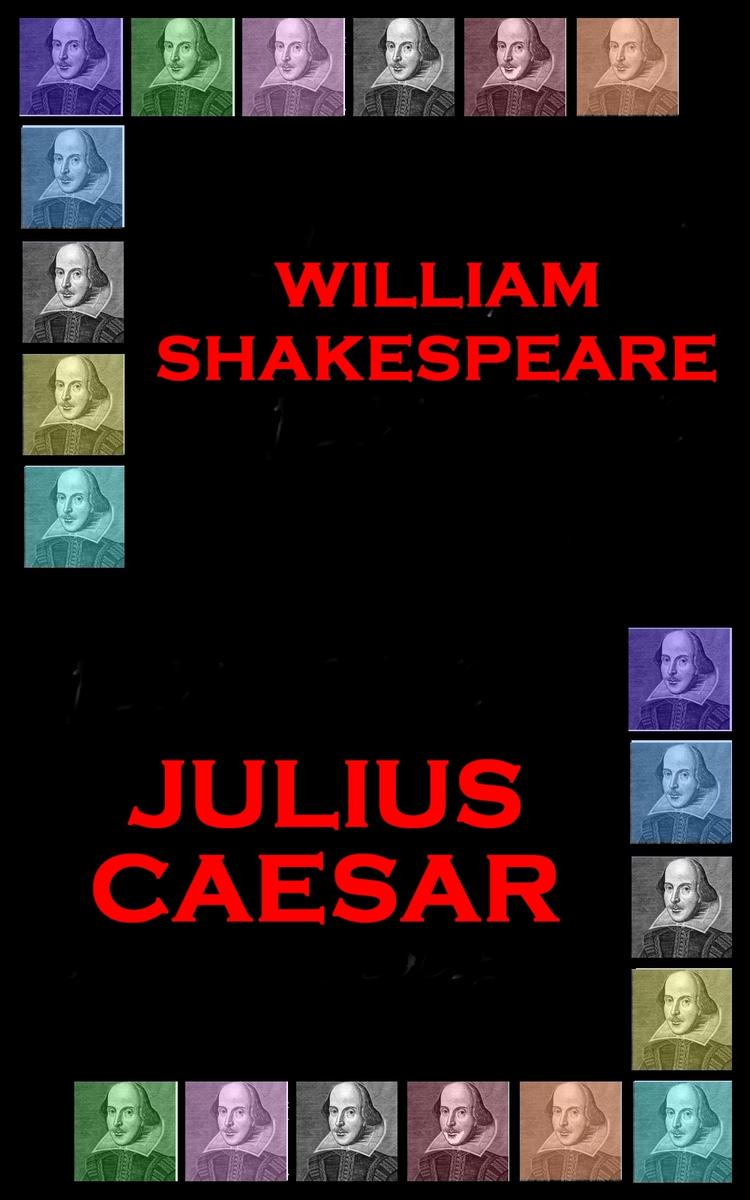
Julius Caesar
¥17.56
William Shakespeare was born in Stratford-upon-Avon in late April 1565 and baptised there on 26th April. He was one of eight children. Little is known about his life but what is evident is the enormous contribution he has made to world literature. His writing was progressive, magnificent in scope and breathtaking in execution. His plays and sonnets helped enable the English language to speak with a voice unmatched by any other. William Shakespeare died on April 23rd 1616, survived by his wife and two daughters. He was buried two days after his death in the chancel of the Holy Trinity Church. The epitaph on the slab which covers his grave includes the following passage, Good friend, for Jesus's sake forbear, To dig the dust enclosed here. Blessed me the man that spares these stones, And cursed be he that moves my bones. Here we publish his tragedy from 1599 'Julius Caesar'.
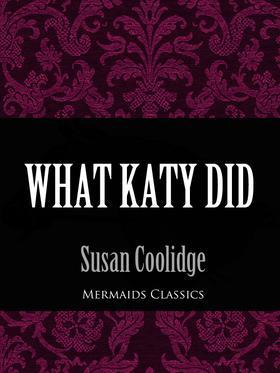
What Katy Did (Mermaids Classics)
¥35.22
What Katy Did (1872) by Sarah Chauncey Woolsey (aka Susan Coolidge) (1835-1905) is a classic childrens novel based on a young 12 year tomboyish type of girl named Katy Carr who endures an accident by falling off a swing and becomes an invalid. Her cousin Helen also an invalid teaches Katy how to be a happier and kinder person by appreciating and making the most of what she has and how to be optimistic and cheerful especially around her siblings. At the end of the story, Katy learns to walk.The sequel to What Katy Did is What Katy Did At School.Mermaids Classics, an imprint of Mermaids Publishing brings the very best of old classic literature to a modern era of digital reading by producing high quality books in ebook format. All of the Mermaids Classics epublications are reproductions of classic antique books that were originally published in print format, mostly over a century ago and are now republished in digital format as ebooks. Begin to build your collection of digital books by looking for more literary gems from Mermaids Classics.
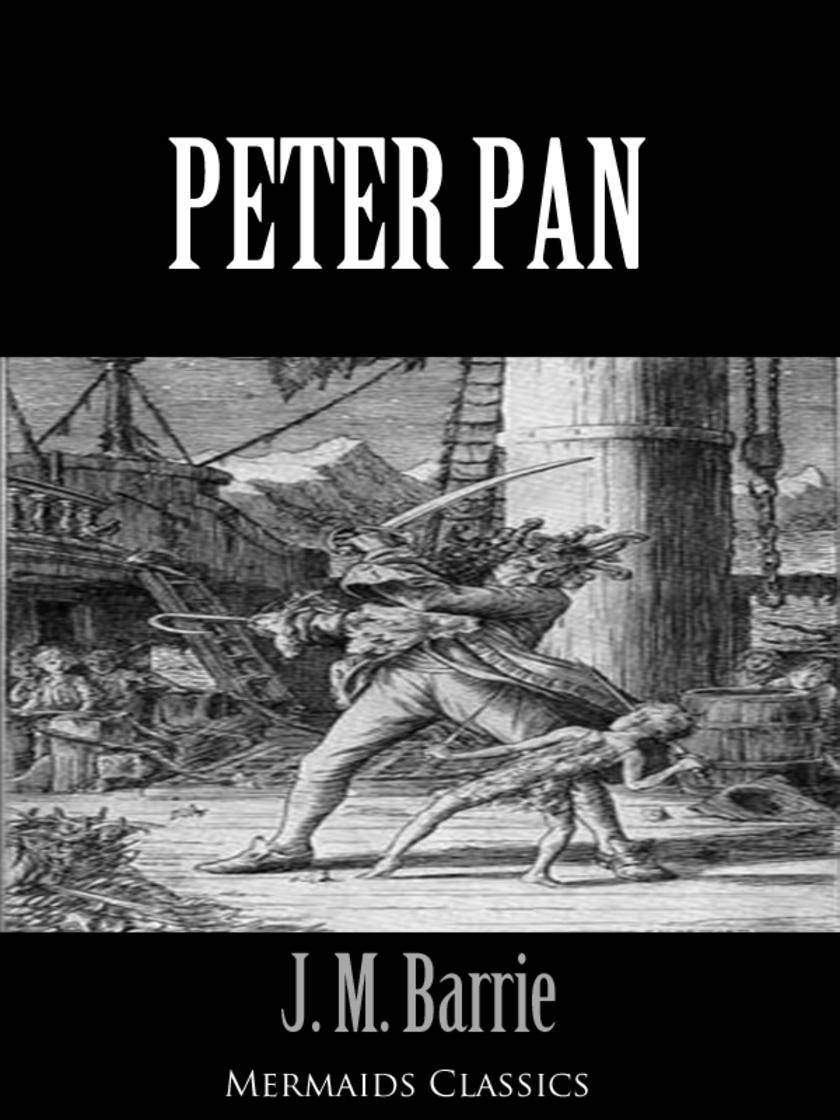
Peter Pan (Mermaids Classics)
¥35.22
Peter Pan (also known as Peter Pan and Wendy or Peter and Wendy) was written by J.M. Barrie (1860 - 1937) and was first published as a novel in 1911. The story follows a young boy who can fly and never grows old. He lives on an island called Neverland with a group of friends called The Lost Boys and fights with the fearsome pirate - Captain Hook. Other friends include fairies, mermaids and of course, children outside of Neverland.This digital edition is beautifully formatted with an active Table of Contents that goes directly to each chapter of the story. Mermaids Classics, an imprint of Mermaids Publishing brings the very best of old classic literature to a modern era of digital reading by producing high quality books in ebook format. All of the Mermaids Classics epublications are reproductions of classic antique books that were originally published in print format, mostly over a century ago and are now republished in digital format as ebooks. Begin to build your collection of digital books by looking for more literary gems from Mermaids Classics.
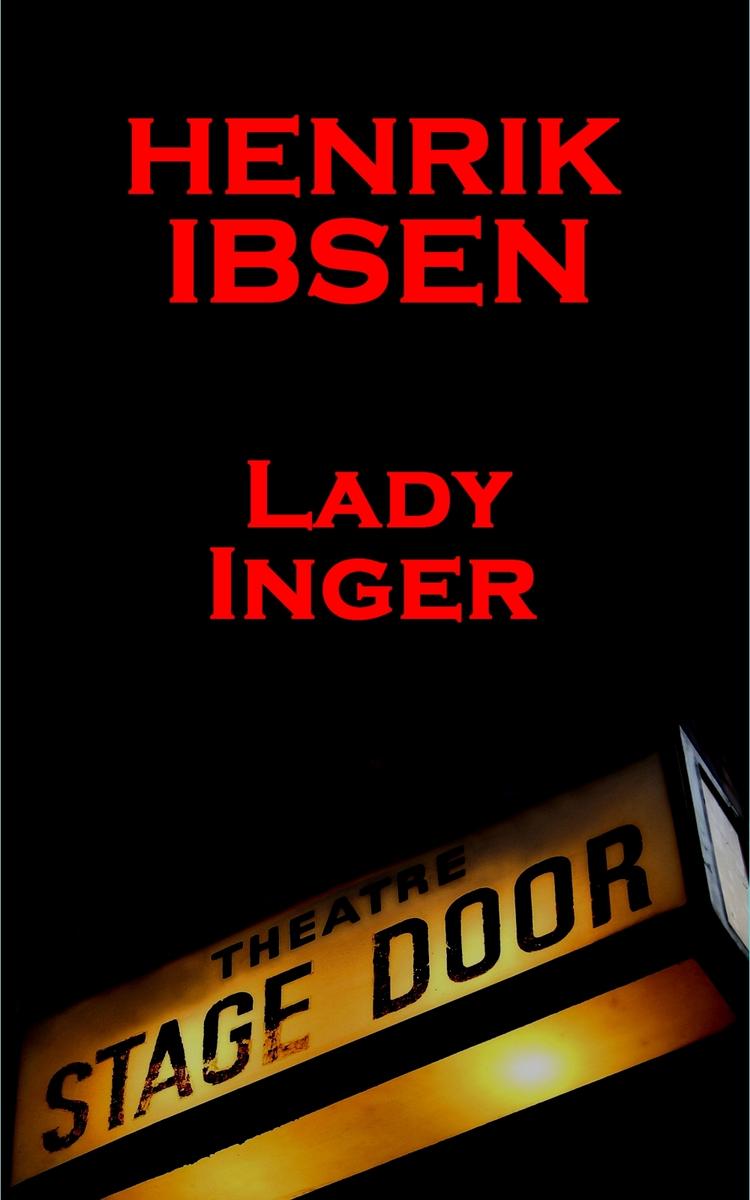
Lady Inger (1857)
¥23.45
Henrik Ibsen (20th March, 1828 - 23rd May, 1906) is often referred to as the father of realism and ranked just below Shakespeare as Europe's greatest ever playwright especially as his plays are performed most frequently throughout the world after Shakespeare's. He was Norwegian and although set his plays in Norway, he wrote them in Danish and lived most of his professional life in Italy and Germany. His affect on the theatre is still evident today and shapes the distinction of plays being art as opposed to entertainment since he broke down all previous traditions and explored issues, developed characterisation, revealed uncomfortable truths, challenged assumptions and brokedown facades in ourselves as well as society. These factors are clearly demonstrated in Lady Inger of Ostrat, a historical play set in a period in history when Norway was struggling to retain independence and Norwegian literature was virtually non existent. Ibsen describes the era as "e;Four Hundred Years of Darkness"e; and his setting Lady Inger at this time was very much part of the patriotic Romantic Nationalism movement of the time, of which he was its most famous exponent. This play is a fine example of both the movement's intent, to reintroduce the near forgotten past of the previous four centuries providing a richer Norwegian culture, as well as Ibsen's poetic style that captures the scan and spirit of old Scandinavian songs and ballads so skilfully .

Wes Anderson Collection: The Grand Budapest Hotel
¥285.57
This companion to the New York Times bestselling bookThe Wes Anderson Collectiontakes readers behind the scenes of the Oscar(R)-winning filmThe Grand Budapest Hotelwith a series of interviews between writer/director Wes Anderson and movie/television critic Matt Zoller Seitz. Learn all about the films conception, hear personal anecdotes from the set, and explore the wide variety of sources that inspired the screenplay and imageryfrom author Stefan Zweig to filmmaker Ernst Lubitsch to photochrom landscapes of turn-of-the-century Middle Europe. Also inside are interviews with costume designer Milena Canonero, composer Alexandre Desplat, lead actor Ralph Fiennes, production designer Adam Stockhausen, and cinematographer Robert Yeoman;essays by film critics Ali Arikan and Steven Boone, film theorist and historian David Bordwell, music critic Olivia Collette, and style and costume consultant Christopher Laverty; and an introduction by playwright Anne Washburn.Previously unpublished production photos, artwork, and ephemera illustrate each essay and interview.The Wes Anderson Collection: The Grand Budapest Hotel stays true to Seitzs previous book on Andersons first seven feature films,The Wes Anderson Collection,with an artful, meticulous design and playful, original illustrations that capture the spirit of Andersons inimitable aesthetic. Together, they offer a complete overview of Andersons filmography to date.Praise for the film,The Grand Budapest Hotel: Four Academy Awards(R), including Costume Design, Music - Original Score, and Production Design;Nine Academy Award nominations, including Best Picture, Directing, and Writing - Original Screenplay; Best Film - Musical or Comedy, Golden Globe Awards; Best Original Screenplay, BAFTA, WGA, NYFCC, and LAFCA AwardsPraise for the book,The Wes Anderson Collection: ';The Wes Anderson Collectioncomes as close as a book can to reading like a Wes Anderson film. The design is meticulously crafted, with gorgeous full-page photos and touches . . .' Eric Thurm,The A.V. Club Also available from Matt Zoller Seitz: Mad Men Carousel, The Oliver Stone Experience, The Wes Anderson Collection: Bad Dads, andThe Wes Anderson Collection.

Wes Anderson Collection: Isle of Dogs
¥239.56
The Wes Anderson Collection: Isle of Dogs is the only book to take readers behind the scenes of the beloved auteur's newest stop-motion animated film. Through the course of several in-depth interviews with film critic Lauren Wilford, writer and director Wes Anderson shares the story behind Isle of Dogs's conception and production, and Anderson and his collaborators reveal entertaining anecdotes about the making of the film, their sources of inspiration, the ins and outs of stop-motion animation, and many other insights into their moviemaking process. Previously unpublished behind-the-scenes photographs, concept artwork, and hand-written notes and storyboards accompany the text. The book also features an introduction by critics and collaborators Taylor Ramos and Tony Zhou, and a foreword by critic Matt Zoller Seitz. The fourth volume of the New York Times bestselling Wes Anderson Collection, Isle of Dogs stays true to the series with its rich design and colorful illustrations, capturing Anderson's signature aesthetic vision and bringing the series's definitive study of Anderson's filmography up to date.Isle of Dogs tells the story of Atari Kobayashi, 12-year-old ward to corrupt Mayor Kobayashi. When, by Executive Decree, all the canine pets of Megasaki City are exiled to a vast garbage-dump called Trash Island, Atari sets off alone in a miniature Junior-Turbo Prop and flies across the river in search of his bodyguard-dog, Spots. There, with the assistance of a pack of newly-found mongrel friends, he begins an epic journey that will decide the fate and future of the entire Prefecture. The film features the voices of Bryan Cranston, Koyu Rankin, Edward Norton, Bob Balaban, Bill Murray, Jeff Goldblum, Kunichi Nomura, Akira Takayama, Greta Gerwig, Frances McDormand, F. Murray Abraham, Tilda Swinton, Akira Ito, Yoko Ono, Mari Natsuko, Harvey Keitel, Courtney B. Vance, Ken Watanabe, Scarlett Johnasson, Fisher Stevens, Nijiro Murakami, and Liev Schreiber.
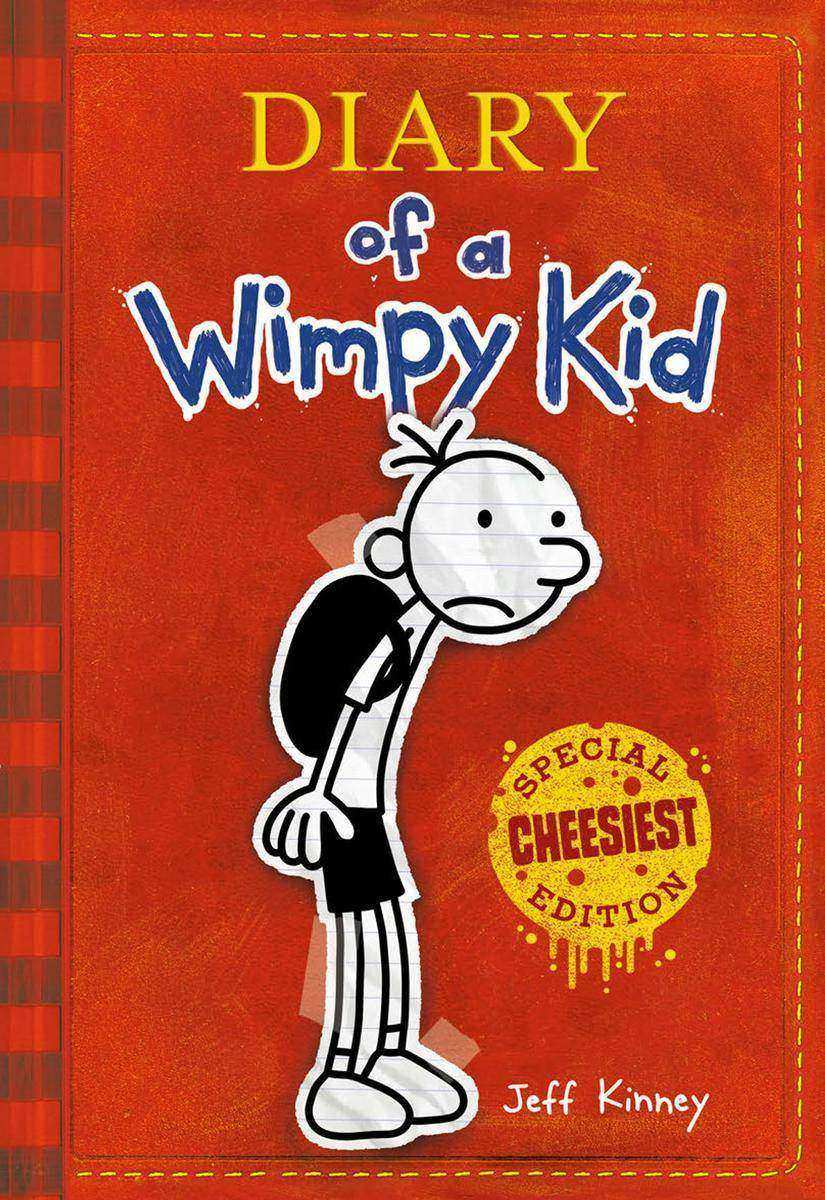
Diary of a Wimpy Kid - Special CHEESIEST Edition
¥138.32
Wimpy Kid Just Got a Lot Cheesier Now you can enjoy the bestselling Diary of a Wimpy Kid series in a whole new way with this Special CHEESIEST Edition! Relive your favorite moments from the book that started it all, with this collectible version printed on premium paper and with a bold new design. You'll never look at Greg, Rowley, Manny, Rodrick, and Fregley the same way again. This Special CHEESIEST Edition is a must-have for longtime fans of the series and new readers alike. But before you open this book, you might want to cross your fingers-you wouldn't want to get the Cheese Touch!
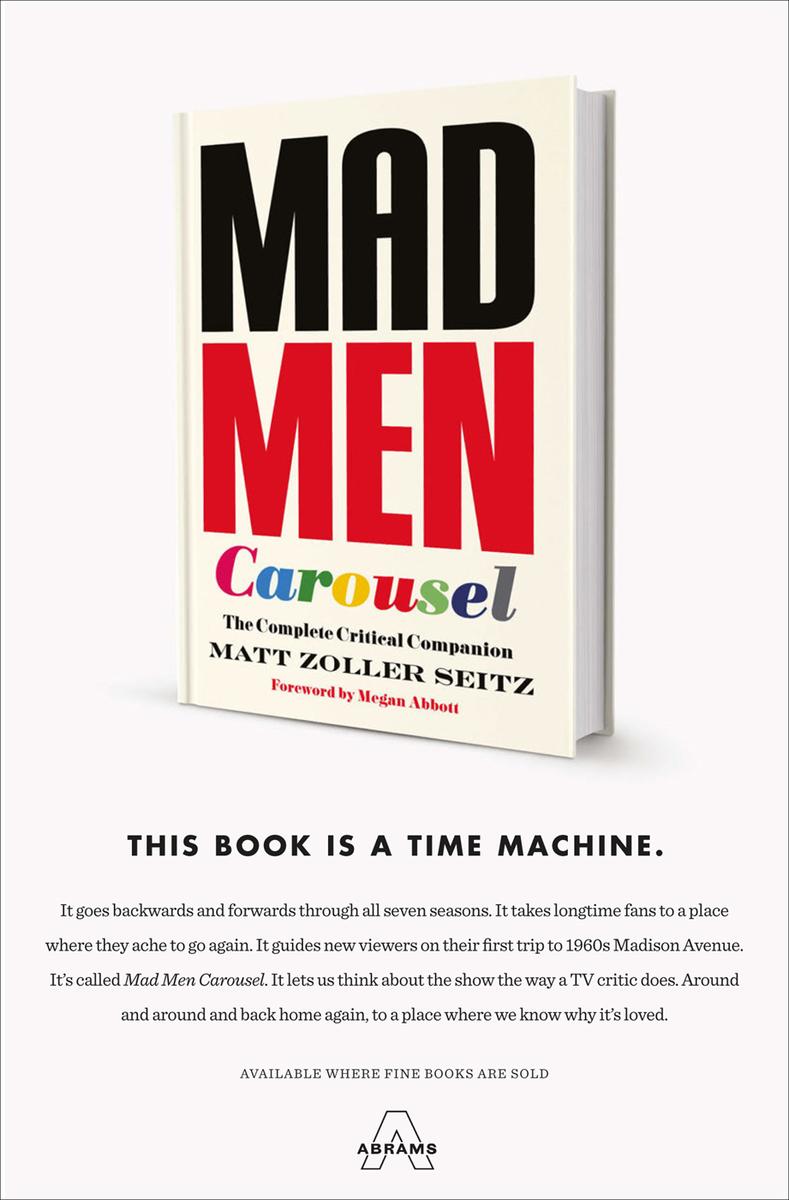
Mad Men Carousel - The Complete Critical Companion
¥138.52
Mad Men Carousel is an episode-by-episode guide to all seven seasons of AMC'sA Mad Men. This book collects TV and movie critic Matt Zoller Seitzs celebrated Mad Men recapsaas featured onA New YorkA magazine'sA VultureA blogafor the first time, including never-before-published essays on the shows first three seasons. Seitzs writing digs deep into the shows themes, performances, and filmmaking, examining complex and sometimes confounding aspects of the series. The complete seriesaall seven seasons and ninety-two episodesais covered. A Each episode review also includes brief explanations of locations, events, consumer products, and scientific advancements that are important to the characters, such as P.J. Clarkes restaurant and the old Penn Station; the inventions of the birth control pill, the Xerox machine, and the Apollo Lunar Module; the release of the Beatles Revolver and the Beach Boys Pet Sounds; and all the wars, protests, assassinations, and murders that cast a bloody pall over a chaotic decade.A A Mad Men Carousel is named after an iconic moment from the shows first-season finale, aThe Wheel,a wherein Don delivers an unforgettable pitch for a new slide projector thats centered on the idea of nostalgia: athe pain from an old wound.a This book will soothe the most ardent Mad Men fans nostalgia for the show. New viewers, who will want to binge-watch their way through one of the most popular TV shows in recent memory, will discover a spoiler-friendly companion to one of the most multilayered and mercurial TV shows of all time.A It's the perfect gift for Mad MenA fans and obsessives. Also available from Matt Zoller Seitz: The Oliver Stone Experience, The Wes Anderson Collection: Bad Dads, The Wes Anderson Collection: The Grand Budapest Hotel, and The Wes Anderson Collection. A
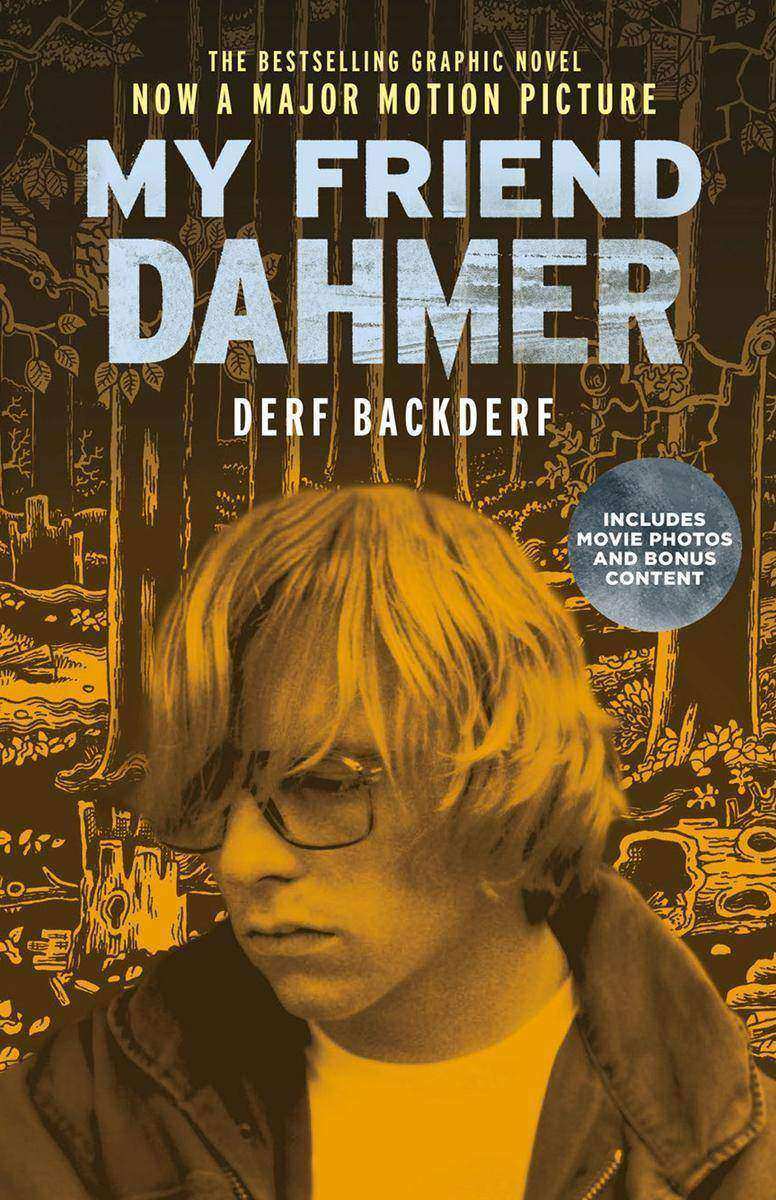
My Friend Dahmer (Movie Tie-In Edition)
¥163.04
"e;A well-told, powerful story. Backderf is quite skilled in using comics to tell this tale of a truly weird and sinister 1970s adolescent world."e; -R. Crumb NATIONAL BESTSELLER Named a BEST OF 2012 by Time, The Village Voice, A.V. Club, comiXology, Boing Boing, Publishers Weekly, MTV Geek, and more! "e;ASTOUNDING."e; -Lev Grossman, Time You only think you know this story. In 1991, Jeffrey Dahmer-the most notorious serial killer since Jack the Ripper-seared himself into the American consciousness. To the public, Dahmer was a monster who committed unthinkable atrocities. To Derf Backderf, Dahmer was a much more complex figure: a high school friend with whom he had shared classrooms, hallways, and car rides. In My Friend Dahmer, a haunting and original graphic novel, writer-artist Backderf creates a surprisingly sympathetic portrait of a disturbed young man struggling against the morbid urges emanating from the deep recesses of his psyche-a shy kid, a teenage alcoholic, and a goofball who never quite fit in with his classmates. With profound insight, what emerges is a Jeffrey Dahmer that few ever really knew, and readers will never forget. This new paperback edition will coincide with the release of the movie adaptation of My Friend Dahmer and will include additional bonus content from the author archives.

Wes Anderson Collection: Bad Dads - Art Inspired by the Films of Wes Anderson
¥211.41
The third volume in the New York Times bestselling Wes Anderson Collection series showcases the best artwork from ';Bad Dads,' an annual exhibition of art inspired by the films of Wes Anderson. Curated by Spoke Art Gallery in San Francisco, ';Bad Dads' has continued to grow and progress as a dynamic group exhibition since its inaugural show in 2011, and has featured work from more than 400 artists from around the world. Those artworks range from paintings to sculptures to limited-edition screen prints and vary greatly in style, making for a diverse and lively show each year. Though each piece is distinct in its own right, the artworks' unifying element is the shared imagery and beloved characters from: Bottle Rocket Rushmore The Royal Tenenbaums The Life Aquatic with Steve Zissou The Darjeeling Limited Fantastic Mr. Fox Moonrise Kingdom The Grand Budapest Hotel The book features an original cover by graphic artist Max Dalton, a foreword by writer and director Wes Anderson himself, and an introduction by TV and movie critic Matt Zoller Seitz, author of the bestselling Wes Anderson Collectionbooks. A visual treasure trove, Bad Dads grants fans of Wes Anderson another creative avenue to explore his inspired worlds and movies. Also available from Matt Zoller Seitz: The Oliver Stone Experience, Mad Men Carousel, The Wes Anderson Collection: The Grand Budapest Hotel, and The Wes Anderson Collection.
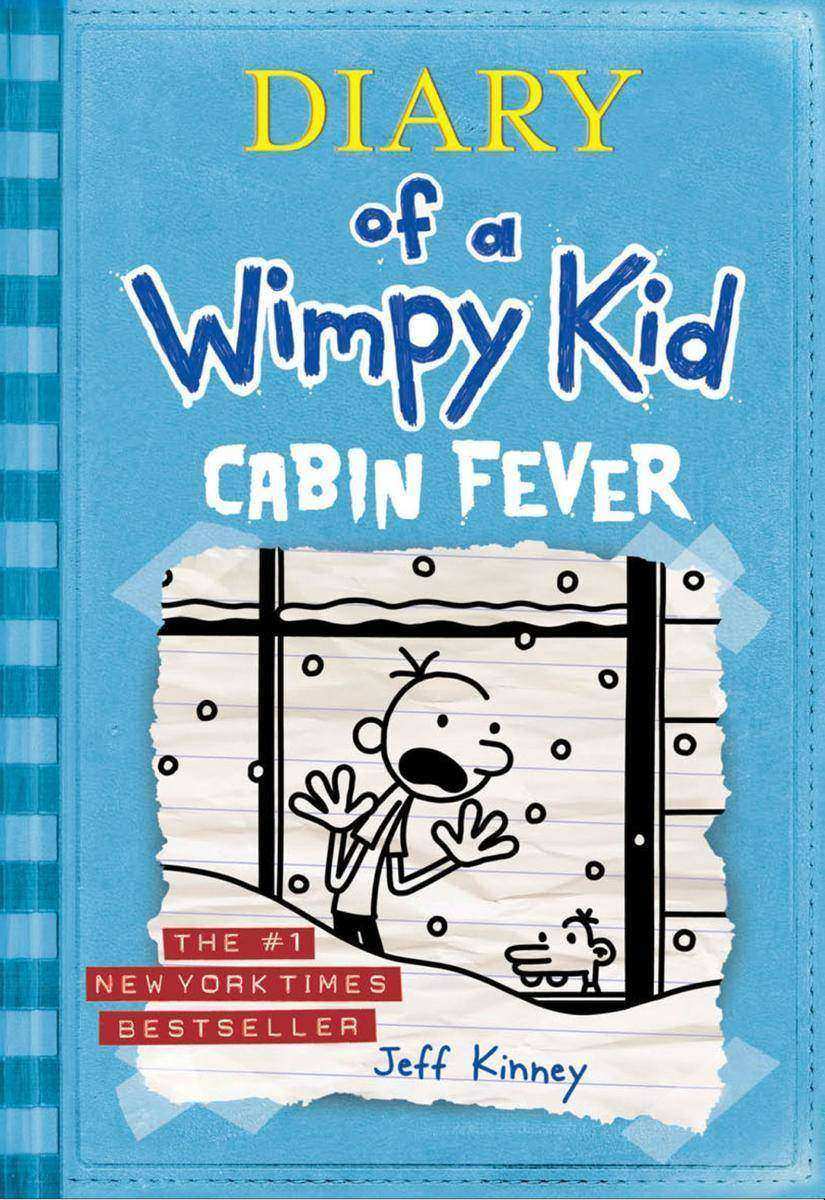
Cabin Fever (Diary of a Wimpy Kid #6)
¥158.82
Greg Heffley is in big trouble. School property has been damaged, and Greg is the prime suspect. But the crazy thing is, he’s innocent. Or at least sort of. The authorities are closing in, but when a surprise blizzard hits, the Heffley family is trapped indoors. Greg knows that when the snow melts he’s going to have to face the music, but could any punishment be worse than being stuck inside with your family for the holidays?

Last Straw (Diary of a Wimpy Kid #3)
¥158.82
The highly anticipated third book in the critically acclaimed and bestselling series takes the art of being wimpy to a whole new level. Let's face it: Greg Heffley will never change his wimpy ways. Somebody just needs to explain that to Greg's father. You see, Frank Heffley actually thinks he can get his son to toughen up, and he enlists Greg in organized sports and other "e;manly? endeavors. Of course, Greg is able to easily sidestep his father's efforts to change him. But when Greg's dad threatens to send him to military academy, Greg realizes he has to shape up . . . or get shipped out. Greg and his family and friends, who make the Diary of a Wimpy Kid books a must-read for middle school readers, are back and at their best in this hilarious new installment of the series, which is sure to please current fans while attracting new ones. Publishers Weekly-1/19/2009:The third book in this genre-busting series is certain to enlarge Kinney's presence on the bestseller lists, where the previous titles have taken up residence for the past two years. Kinney's spot-on humor and winning formula of deadpan text set against cartoons are back in full force. This time, Greg starts off on New Year's Day (he resolves to "e;help other people improve,? telling his mother, "e;I think you should work on chewing your potato chips more quietly?) and ends with summer vacation. As he fends off his father's attempts to make him more of a man (the threat of military school looms), Greg's hapless adventures include handing out anonymous valentines expressing his true feelings ("e;Dear James, You smell?), attempting to impress his classmate Holly and single-handedly wrecking his soccer team's perfect season. Kinney allows himself some insider humor as well, with Greg noting the "e;racket? children's book authors have going. "e;All you have to do is make up a character with a snappy name, and then make sure the character learns a lesson at the end of the book.? Greg, self-centered as ever, may be the exception proving that rule. Ages 8"e;12. (Jan.) F&P level: T
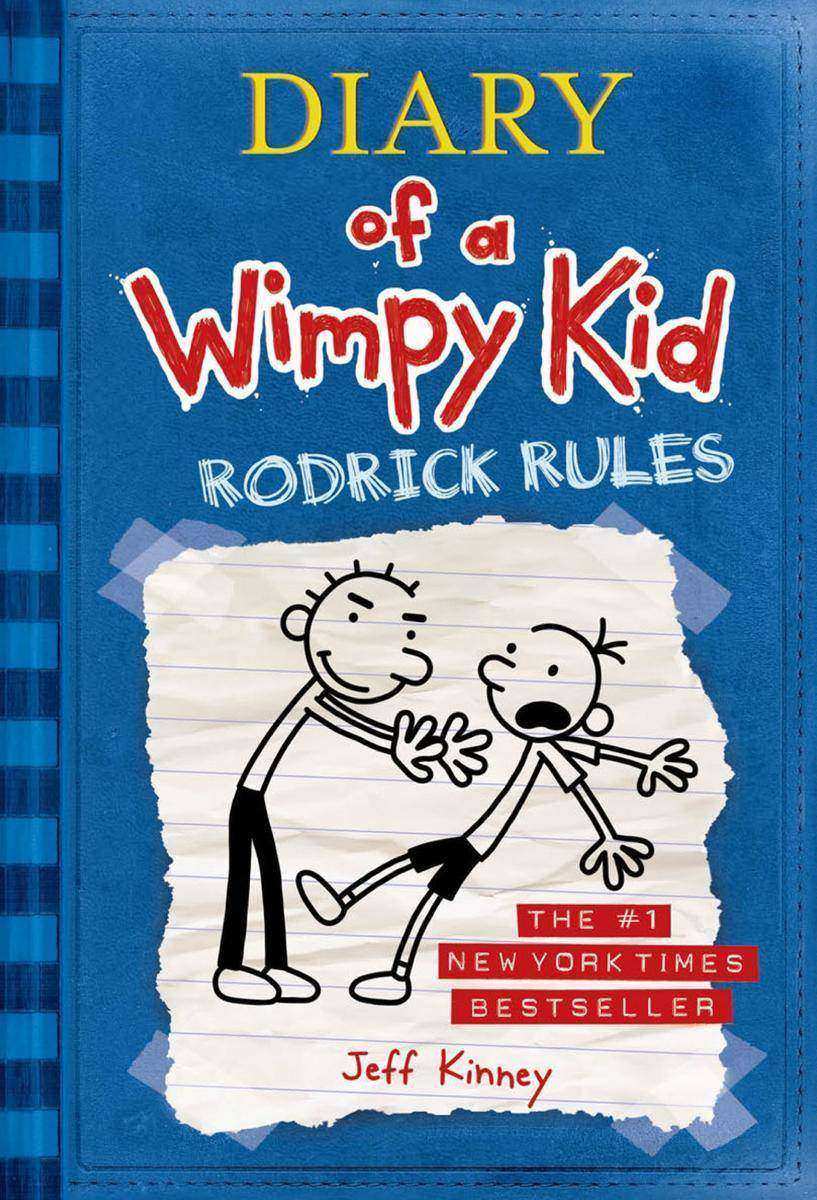
Rodrick Rules (Diary of a Wimpy Kid #2)
¥158.82
The highly anticipated sequel to the #1 NEW YORK TIMES bestselling book! Secrets have a way of getting out, especially when a diary is involved. Whatever you do, don't ask Greg Heffley how he spent his summer vacation, because he definitely doesn't want to talk about it. As Greg enters the new school year, he's eager to put the past three months behind him . . . and one event in particular. Unfortunately for Greg, his older brother, Rodrick, knows all about the incident Greg wants to keep under wraps. But secrets have a way of getting out . . . especially when a diary is involved. Diary of a Wimpy Kid: Rodrick Rules chronicles Greg's attempts to navigate the hazards of middle school, impress the girls, steer clear of the school talent show, and most important, keep his secret safe.?F&P level: T




 购物车
购物车 个人中心
个人中心



